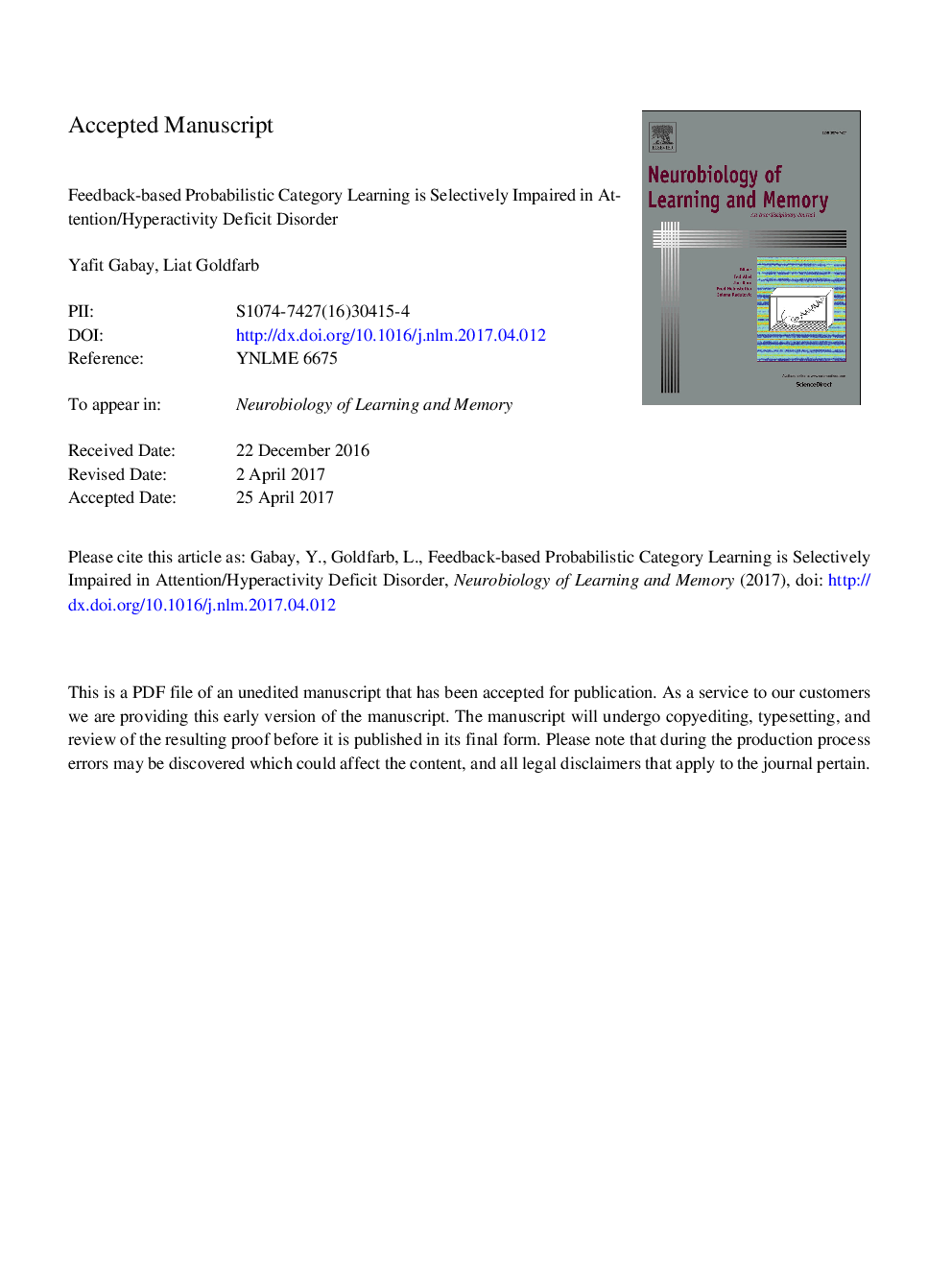ترجمه فارسی عنوان مقاله
آموزش مبتنی بر بازخورد مبتنی بر احتمالات به طور انتخابی در اختلال نقص توجه / بیش فعالی اختلال ایجاد می کند
عنوان انگلیسی
Feedback-based probabilistic category learning is selectively impaired in attention/hyperactivity deficit disorder
| کد مقاله | سال انتشار | تعداد صفحات مقاله انگلیسی |
|---|---|---|
| 158888 | 2017 | 39 صفحه PDF |
منبع

Publisher : Elsevier - Science Direct (الزویر - ساینس دایرکت)
Journal : Neurobiology of Learning and Memory, Volume 142, Part B, July 2017, Pages 200-208
ترجمه کلمات کلیدی
اختلال بیش فعالی کمبود توجه، آموزش گروهی احتمالی یادگیری رویه ای، بازخورد، زوج وابسته، وظیفه پیش بینی آب و هوا،
کلمات کلیدی انگلیسی
Attention-deficit hyperactivity disorder; Probabilistic category learning; Procedural learning; Feedback; Paired-associate; Weather prediction task;

